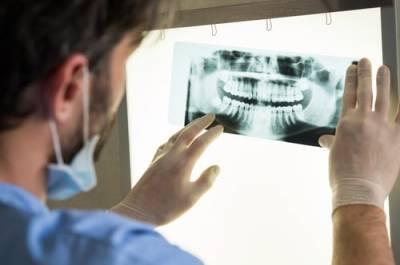 There are a variety of techniques that criminal investigators and prosecutors may use to identify suspects and attempt to prove their guilt. While these techniques are referred to as "forensic science," they are often very unscientific. Unfortunately, far too many criminal convictions are based on "junk science" that does not hold up to scrutiny and does not accurately prove that a person committed a crime. Bite mark analysis is one of the most thoroughly debunked forms of flawed forensic science, but some people who were wrongfully convicted based on this type of evidence are still struggling to protect their rights and receive fair treatment in the criminal justice system.
There are a variety of techniques that criminal investigators and prosecutors may use to identify suspects and attempt to prove their guilt. While these techniques are referred to as "forensic science," they are often very unscientific. Unfortunately, far too many criminal convictions are based on "junk science" that does not hold up to scrutiny and does not accurately prove that a person committed a crime. Bite mark analysis is one of the most thoroughly debunked forms of flawed forensic science, but some people who were wrongfully convicted based on this type of evidence are still struggling to protect their rights and receive fair treatment in the criminal justice system.
The idea behind bite mark evidence may seem sound: if people have unique dental patterns, then it should be possible to identify a perpetrator based on the impressions left behind by their teeth on a victim's body. However, analysis of bite marks is unreliable due to multiple issues:
Dentition (the arrangement of people's teeth) is not necessarily as unique as it may seem. While the specific arrangement of teeth in a person's mouth may be notable, there is no scientific evidence showing that dentition is unique to each person. Dental patterns are not the same as fingerprints or DNA, and multiple people may have similar dentition.
Skin is not a suitable material to hold evidence of bite marks. Human skin is malleable, and marks left behind by teeth or other objects can be stretched and distorted. Because of this, the specific patterns left by a bite are usually inconclusive, and it can often be difficult to determine whether a wound or indentation was made by teeth or other objects.
Supposed bite mark experts cannot reliably determine whether bruises, abrasions, puncture wounds, or other marks on a person's body were made by teeth, and they cannot reliably match bite marks to a specific person. This was demonstrated by a study conducted by the American Board of Forensic Odontology in which 39 "experts" with an average of 20 years of experience in bite mark analysis were asked to review 100 photos of bite marks and follow a specified procedure to determine whether a bite was made by a human and contained sufficient distinctive features to be used as evidence that could identify a suspect. Out of the 100 photos reviewed, there were only four cases where the experts unanimously agreed that bite marks were made by human teeth.
While it may seem evident that analysis of bite marks is junk science, criminal justice advocates have struggled to get courts to recognize that this form of evidence should not be used in criminal cases. Because many courts rely on precedents, judges may accept bite mark evidence because it has been considered to be valid evidence in previous cases, even though it has subsequently been found to be unreliable.
People who have been convicted based on faulty bite mark evidence have also struggled to address these new findings and overturn wrongful convictions. One especially notable case involves Charles McCrory, an Alabama man who was convicted of murdering his wife in 1985. The conviction was based primarily on the testimony of a forensic dentist who stated that two puncture wounds on the victim's arm were a perfect match to the defendant's teeth. However, in the years since the conviction, the expert has completely recanted his testimony and stated that there is no scientific basis for concluding that the puncture wounds matched the defendant's teeth. Despite the fact that there is no longer evidence to support a conviction, Alabama courts have chosen to uphold the conviction, and McCrory has remained in prison.
There are numerous forms of forensic evidence that prosecutors may use to attempt to secure a conviction, and those who are facing criminal charges will need to understand the potential defense strategies that may be used to challenge this evidence. At Woolf & Ross Law Firm, LLC, our Connecticut criminal defense attorney fights to protect the rights of criminal defendants and ensure that the evidence used in a trial is valid and supported by science. We can provide guidance on the best defense strategies to use in order to avoid a conviction. To learn more about how we can assist in defending against criminal charges, contact our office at 860-290-8690 and arrange a free consultation.
Sources:
https://theintercept.com/2023/03/12/bite-mark-analysis-charles-mccrory-alabama/
https://theintercept.com/2022/04/24/bite-mark-evidence-junk-science/
https://www.washingtonpost.com/news/the-watch/wp/2015/04/08/a-bite-mark-matching-advocacy-group-just-conducted-a-study-that-discredits-bite-mark-evidence/
 50 Founders Plaza
50 Founders Plaza

